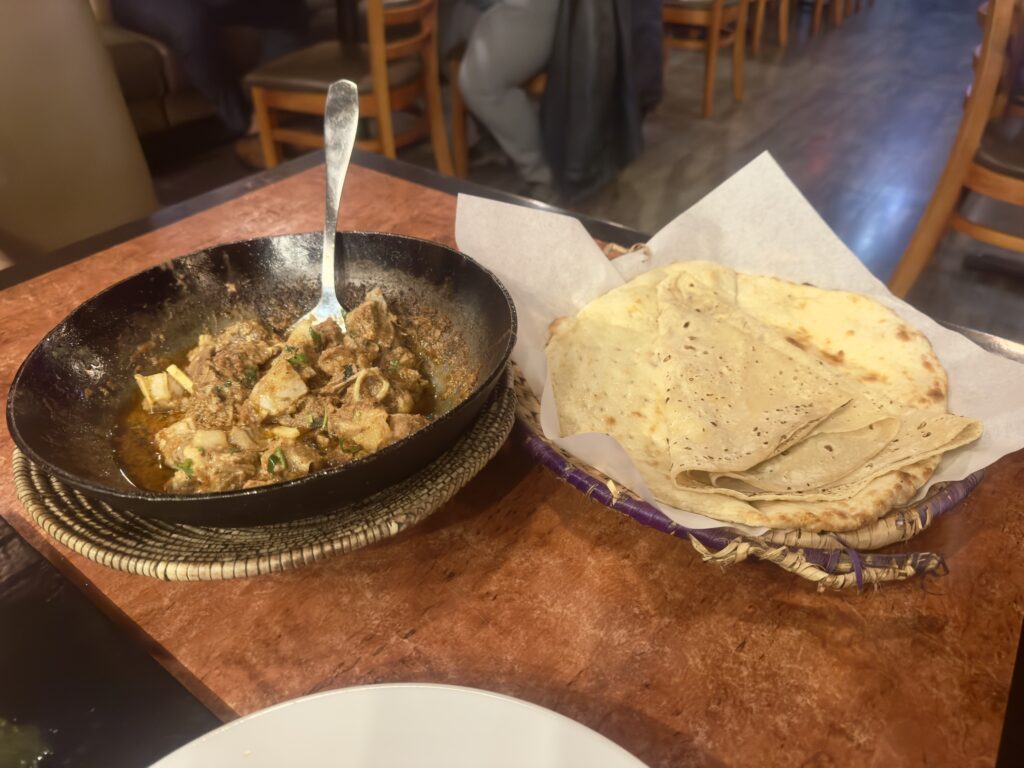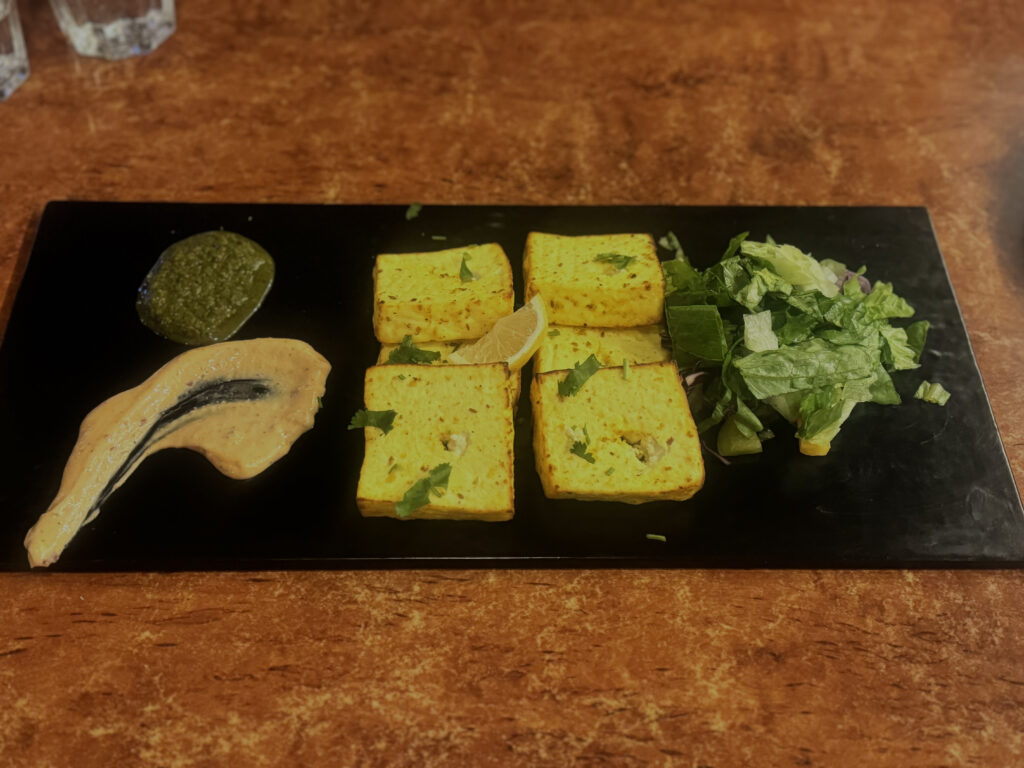By: Yasmin Hassan, Staff Writer
On a quiet Thursday evening in October, I found myself walking the streets of a humble Fraserview Vancouver neighborhood. In the midst of this unassuming area, warm orange and yellow-ish lights peered through large windows belonging to what used to be a kebab shop, luring me in without a word. Karakoram — a name derived from the mountain range in between Central and South Asia — is a restaurant offering traditional Pakistani dishes and flavour, opening late and closing even later, from 4:00 p.m. to 2:00 a.m. This is home cooking reimagined in a fine dining restaurant. I grew up eating halal food from Middle Eastern cuisines of all kinds, and I had my occasional Indian food here and there, but no former tasting experience could’ve prepared me for the Pakistani fusion of a little bit of everything.

One thing to note before we ordered: we spent a good 15 minutes deciding what to get — that’s just how big their menu is. There’s something for everyone! After paging through each section of the menu, my friend and I decided to start with the paneer tikka. Paneer is a soft, unaged cheese made from curdled milk, and this appetizer called for it to be grilled in spices and served with a fragrant green chutney. If you’ve ever had haloumi, think of it as similar to that but much milder on the palette. It was firm on the outside, softly chewy on the inside, and provided a lightweight, vegetarian-friendly start to our dining experience.

The special thing about Pakistani cuisine is that it’s a unique blend of regional, Indian, Middle Eastern, and Central Asian influences. Although many compare the similarities between Indian and Pakistani cuisines, there are distinct differences in the use of dairy products and meat. Where Indian dishes mostly use ghee (clarified butter), Pakistani dishes call for butter and cream, which make them richer.
We asked our server what she recommended, and we were told that the house karahi is their most popular dish. Karahi is a thick, gravy-like masala curry with a tomato-green chili-ginger base. This dish originates from the Khyber Pakhtunkhwa region of Pakistan, and is named after the deep pot in which its cooked in; the karahi or kadai. We chose the lamb Karakoram special, which came with fresh buttery naan and roti. Tender lamb stewed in a medley of aromatic spices, vegetables, and garnished with green chilies and coriander, scooped up in warm naan and roti . . . what more do you need to warm you up on a cold autumn night?
When I thought the delights stopped there, I was gravely mistaken. A mango lassi was in our sights, and we both agreed it’d be worth it; boy, were we right. The sweet and tangy mango puree blended with smooth yogurt soothed our mouths and stomachs after all the savoury goods. It was a reminder to never skip dessert. We were interested in the falooda — a popular Mughlai dessert made with vermicelli and milk — but they unfortunately didn’t have it, as delicious as it sounded. The Gulab Jamun looked like the next best thing, and I hate to pat myself on the back, but it was. Fried khoya dough soaked in fragrant rose-water and a sugary syrup, garnished with almond slivers; what a way to end off the night. For those of you who are seasoned vets or are curious in exploring halal cuisines, give Karakoram a try! You won’t regret it!




